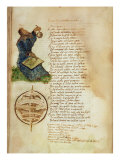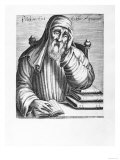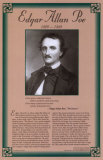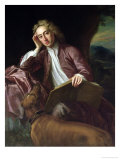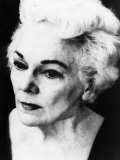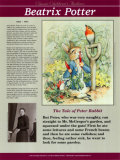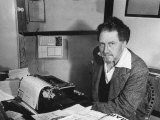|
|
|
|
|
Sylvia Plath
b. 10-27-1932; Boston, MA
d. 2-11-1963; London
A Troubled Genius - Few poets in the 20th century literature could match the lyricism and emotional intensity of Sylvia Plath's work. Afflicted with bipolar disorder, Plath transformed her inner turmoil into poems full of sadness, anger, and beauty – combining a sense of profound loss with surprising personal strength. Though she lived only a short time, Plath not only inspired admiration and imitation – she also helped launch an emerging feminist movement.
Plath was married to poet Ted Hughes.
Sylvia Plath quotes:
• “Dying is an art, like everything else. I do it exceptionally well. I do it so it feels like hell. I do it so it feels real. I guess you could say I've a call.”
• “If neurotic is wanting two mutually exclusive things at one and the same time, then I'm neurotic as hell. I'll be flying back and forth between one mutually exclusive thing and another for the rest of my days.”
• “And by the way, everything in life is writable about if you have the outgoing guts to do it, and the imagination to improvise. The worst enemy to creativity is self-doubt.”
• Bell Jar movie poster
• Sylvia Plath in Famous Author Educational Mini poster set
|
|
|
|
Pliny the Elder
b. AD 23; Como, Roman Empire
d. 8-25-79 AD; Eruption of Vesuvius
Gaius Plinius Secundus, an author and natural philosopher, wrote Naturalis Historia, an encyclopedia that became the model for referencing original authors and a comprehensive index of extensive content covering subjects of natural objects and phenomena, as well as man-made objects.
|
|
|
|
Plutarch, neé Plutarcho
b. 46; Greece
d. c. 127 AD
Plutarch, a priest of Apollo at the Oracle of Delphi, is better know as a biographer and historian for works like Parallel Lives and Moralia.
Plutarch quotes ~
• “It is not histories I am writing, but lives; and in the most glorious deeds there is not always an indication of virtue or vice, indeed a small thing like a phrase or a jest often makes a greater revelation of a character than battles where thousands die.” - Life of Alexander/Life of Julius Caesar
• “The soul, being eternal, after death is like a caged bird that has been released. If it has been a long time in the body, and has become tame by many affairs and long habit, the soul will immediately take another body and once again become involved in the troubles of the world. The worst thing about old age is that the soul's memory of the other world grows dim, while at the same time its attachment to things of this world becomes so strong that the soul tends to retain the form that it had in the body. But that soul which remains only a short time within a body, until liberated by the higher powers, quickly recovers its fire and goes on to higher things.” - The Consolation, Moralia
FYI ~ Plutarch's works were inspirational to Montaigne.
|
|
|
|
Edgar Allan Poe
b. 1-19-1809; Boston, MA
d. 10-7-1849; Baltimore, MD
Once upon a midnight dreary, while I pondered, weak and weary,
Over many a quaint and curious volume of forgotten lore ...
“The Raven”
Edgar Allan Poe is often called the father of the modern mystery story. He was truly one of America's most gifted poets, short story writers and critic. These lines from his famous poem “The Raven” are a good example of the of his, often terrifying works. Poe was born in 1809 in Boston. His parents both died before he was three. Young Edgar was raised by John Allan, a rich tobacco merchant in Richmond, Virginia. Edgar was an excellent student and went to the University of Virgina, but stayed only a year due to money problems. He next moved to Boston and joined the army. By this time, he had written his first book, Tamerlane and Other Poems (1827), and had it printed at his own expense. Edgar then started writing short stories. His most productive years were from 1837 to 1845. But, despite his success as an editor and writer his family often went without enough food. Some of his best stories were in Tales of the Grotesque and Arabesque (1840) which included The Pit and the Pendalum and The Tell-Tale Heart. But as good as these stories were, they brought Poe little fame and money. Not until the publication of The Raven and Other Poems (1845) did he start to become well-known. Sadly, the last years of his life were tragic. His wife died in 1847, and in his grief, Poe developed a drinking problem. In October 1849 he was found lying unconscious, and he died four days later at age 40. the cause of his death remains unknown.
• more Poe posters
• more 19th Century American Authors
|
|
|
|
Henrik Pontoppidan
b. 7-24-1857; Denmark
d. 8-21-1943; Denmark
Realist writer Henrik Pontoppidan was the 1917 Nobel Prize for Literature recipient for “for his authentic descriptions of present-day life in Denmark.” Sven H. Rossel said “Henrik Pontoppidan characterized himself as a ‘popular storyteller.’ This modest self-characterization by an inspired epic writer corresponds to his clear style, which ‘de-lyricizes’ language. No other modern Danish author has been able to paint so precisely a complete picture of his time - its intellectual movements and its people.” (A History of Scandinavian Literature, 1870-1980, 1982)
Pontoppidan shared the award with fellow Dane Karl Adolph Gjellerup.
|
|
|
|
Alexander Pope
b. 5-22-1688; London, England
d. 5-30-1744
Alexander Pope, generally regarded as the greatest English poet of the eighteenth century, is said to be the third most frequently quoted writer in the English language, after Shakespeare and Tennyson.
His words,“Education forms the common mind. Just as the twig is bent, the tree's inclined.”, taken with his biography of being denied an education because he was Catholic, has special poigancy.
His Great Dane Bounce may have inspired “Histories are more full of examples of fidelity of dogs than of friends.”
FYI ~ Pope was contemporaneous with Jonathan Swift and William Congreve.
Alexander Pope quotes ~
• “In cold December fragrant chaplets blow, And heavy harvests nod beneath the snow.”
• “An honest man is the noblest work of God.”
• “He who tells a lie is not sensible of how great a task he undertakes; for he must be forced to invent twenty more to maintain that one.”
• “Some people will never learn anything because they understand everything too soon.”
• “To err is human, to forgive, divine.”
• “Fools rush in where angels fear to tread.”
• “It is with narrow-souled people as with narrow necked bottles: the less they have in them, the more noise they make in pouring it out.”
• The Works of Alexander Pope
|
|
|
|
Katherine Anne Porter
née Callie Russel Porter
b. 5-15-1890; Indian Creek, Texas
d. 9-18-1980; Silver Spring, MD
Katherine Anne Porter, a Pulitzer Prize-winning journalist, essayist, short story writer, novelist, and political activist, is known for her insight into the dark themes of betrayal, death and the origin of human evil. Her only novel was Ship of Fools (1962).
Katherine Anne Porter quotes ~
• “The human heart is not yet so corroded that it can read off the extinction of these two men without a shock to the very roots of its belief in justice and humanity.” ~ referring to the Sacco-Vanzetti case, 1927
• “The real sin against life is to abuse and destroy beauty, even one's own — even more, one's own, for that has been put in our care and we are responsible for its well-being.” ~ Ship of Fools
• “There seems to be a kind of order in the universe, in the movement of the stars and the turning of the earth and the changing of the seasons, and even in the cycle of human life. But human life itself is almost pure chaos. Everyone takes his stance, asserts his own rights and feelings, mistaking the motives of others, and his own.” ~ Writers at Work interview, 1963
• “Human life itself may be almost pure chaos, but the work of the artist — the only thing he's good for — is to take these handfuls of confusion and disparate things, things that seem to be irreconcilable, and put them together in a frame to give them some kind of shape and meaning. Even if it's only his view of a meaning. That's what he's for — to give his view of life.” ~ Writers at Work interview, 1963
• “You do not create a style. You work, and develop yourself; your style is an emanation from your own being.” ~ Writers at Work interview, 1963
• “Freedom, remember, is not the same as liberty.” ~ The Never-Ending Wrong, 1977
• “The trial of Jesus of Nazareth, the trial and rehabilitation of Joan of Arc, any one of the witchcraft trials in Salem during 1691, the Moscow trials of 1937 during which Stalin destroyed all of the founders of the 1924 Soviet Revolution, the Sacco-Vanzetti trial of 1920 through 1927 — there are many trials such as these in which the victim was already condemned to death before the trial took place, and it took place only to cover up the real meaning: the accused was to be put to death. These are trials in which the judge, the counsel, the jury, and the witnesses are the criminals, not the accused. For any believer in capital punishment, the fear of an honest mistake on the part of all concerned is cited as the main argument against the final terrible decision to carry out the death sentence. There is the frightful possibility in all such trials as these that the judgment has already been pronounced and the trial is just a mask for murder.” ~ The Never-Ending Wrong, 1977
|
|
|
|
|
|
|
Ezra Pound
b. 10-30-1885; Haley, Idaho
d. 11-1-1972; Venice
Poet and critic Ezra Pound was a major figure of the early modernist movement and Imagism, a technique emphsizing “clarity, precision and economy” of language.
Pound was an expatriate, an American living in overseas, and worked as the foreign editor for several American literary magazines in London in the early 20th century. He promoted the work of his contemporaries and fellow American expats such as T.S. Eliot, Robert Frost, Ernest Hemingway, Hilda Doolittle, and Irishman James Joyce.
Disillusioned by England after WWI he lived in Italy from 1924 into the 1940s. His support and work for fascism, including War II broadcasts criticizing America and the Allies, lead to his arrest for treason in 1945. A mental breakdown after months of detention in a US military camp (which included 25 days in a six-by-six-foot outdoor steel cage) lead to incarceration in St. Elizabeths psychiatric hospital in Washington, D.C., for over 12 years. He was eventually released and lived in Italy for the rest of his life
Ezra Pound quotes ~
• “One discards rhyme, not because one is incapable of rhyming neat, fleet, sweet, meet, treat, eat, feet but because there are certain emotions or energies which are not represented by the over-familiar devices or patterns. ” ~ Affirmations: As for Imagism, in a New Age, Jan 1915
• “The author's conviction on this day of the New Year is that music begins to atrophy when it departs too far from the dance; that poetry begins to atrophy when it gets too far from music. ” ~ ABC of Reading, Preface, 1934
• “Poets who are not interested in music are, or become, bad poets.”
• “Real education must ultimately be limited to one who INSISTS on knowing, the rest is mere sheep-herding.” ~ ABC of Reading, 1934
• “The man of understanding can no more sit quiet and resigned while his country lets literature decay than a good doctor could sit quiet and contented while some ignorant child was infecting itself with tuberculosis under the impression that it was merely eating jam tarts.” ~ ABC of Reading, 1934
• “Artists are the antennae of the race.” ~ ABC of Reading, 1934
• “Literature is news that stays news.” ~ ABC of Reading, 1934
• “But the one thing you shd. not do is suppose that when something is wrong with the arts, it is wrong with the arts ONLY. ” ~ Guide to Kulchur, 1938
• “re USURY / I was out of focus, taking a symptom for a cause. / The cause is AVARICE.” ~ shortly before his death
• “The temple is holy because it is not for sale. ” ~ from Canto 97
• “Do not move/ Let the wind speak that is paradise. /Let the Gods forgive what I have made /Let those I love try to forgive what I have made.” ~ from Canto 120
• The Cantos of Ezra Pound
|
|
|
previous page | top | next
authors list | a | b | c | d | e | f | g | h | i | j | k | l | m | n | o |
Pa | Pe | Ph-Pi | PL-PO | Pr-Pu | q | r | s | t | u | v | w | x-y-z
|
|
I have searched the web for visual, text, and manipulative curriculum support materials - teaching posters, art prints, maps, charts, calendars, books and educational toys featuring famous people, places and events - to help teachers optimize their valuable time and budget.
Browsing the subject areas at NetPosterWorks.com is a learning experience where educators can plan context rich environments while comparing prices, special discounts, framing options and shipping from educational resources.
Thank you for starting your search for inspirational, motivational, and educational posters and learning materials at NetPosterWorks.com. If you need help please contact us.
|
|
|
|








